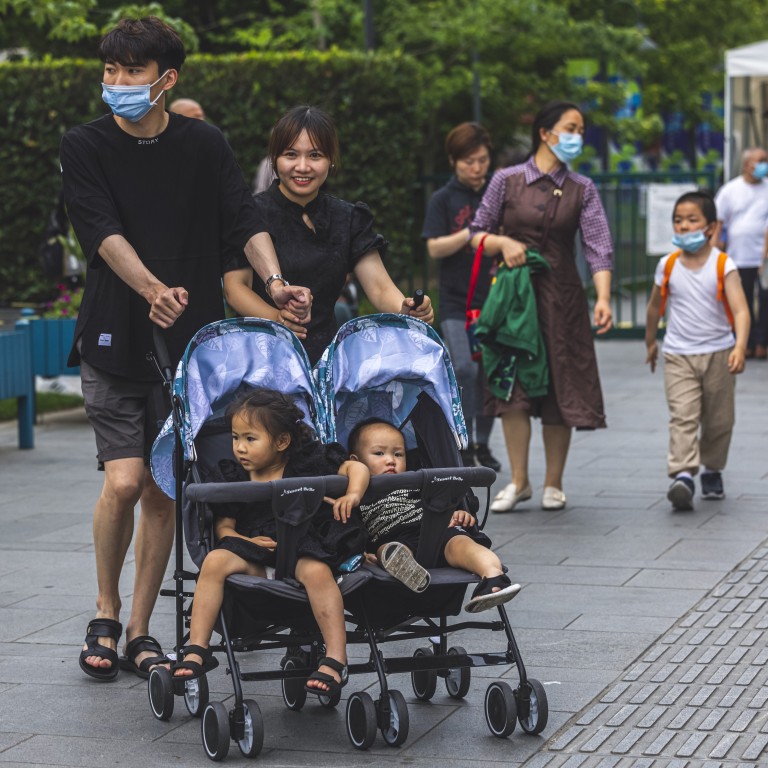
China confirms all citizens can now have third child amid policy change confusion
- Health commission says couples can register with their local authorities, even though change has not yet been legislated
- Documents will be issued once the amendment has been passed and mothers will be entitled to 98 days of maternity leave
The clarification was made by the National Health Commission, according to Shanghai news outlet The Paper, amid confusion over when the change would take effect.
Although Beijing said it would scrap a two-child limit in May – as it grapples with the challenges of an ageing population – the change has not yet been legislated.
China’s cabinet submitted the proposed amendment to the top legislative body on June 18, but the National People’s Congress Standing Committee has yet to endorse it.
However, the National Health Commission told The Paper that couples who want to have a third child can do so and have been able to do so since May 31.
The health commission said couples must register with their local authorities and they will be able to get the documents needed once the amendment is passed, according to the report on Tuesday. Mothers having a third child will be entitled to 98 days of maternity leave.

02:04
China expands two-child policy to three
The May announcement has apparently also caused confusion among local governments, which have taken different approaches to implementing the policy change.
For example, in the city of Linxiang, Hunan province, authorities have said they would only process a “birth service certificate” application for a third child after the amendment was passed, the report said.
Authorities in Tibet and Xiuning county, Anhui said they would accept registrations first and the documents could come later. But in Tibet, mothers will not be eligible for maternity leave for a third child until the amendment is passed.
Birth service certificates are needed to get maternity care and to apply for a newborn baby’s hukou – the household registration document that all Chinese citizens must have which controls access to public services based on birthplace.
The policy shift follows a major change in 2016, when Beijing ended the decades-old one-child policy, allowing couples to have two children. Before then, a permit was needed to have a child, and those who violated the contentious policy faced hefty fines and even forced abortions.
On Tuesday, the health commission clarification quickly became the most discussed topic on social media network Weibo, China’s Twitter. Many commenters said they were not interested in having a third child because of the high cost involved.
‘Too much pressure’: mixed reaction to China’s new 3-child policy

